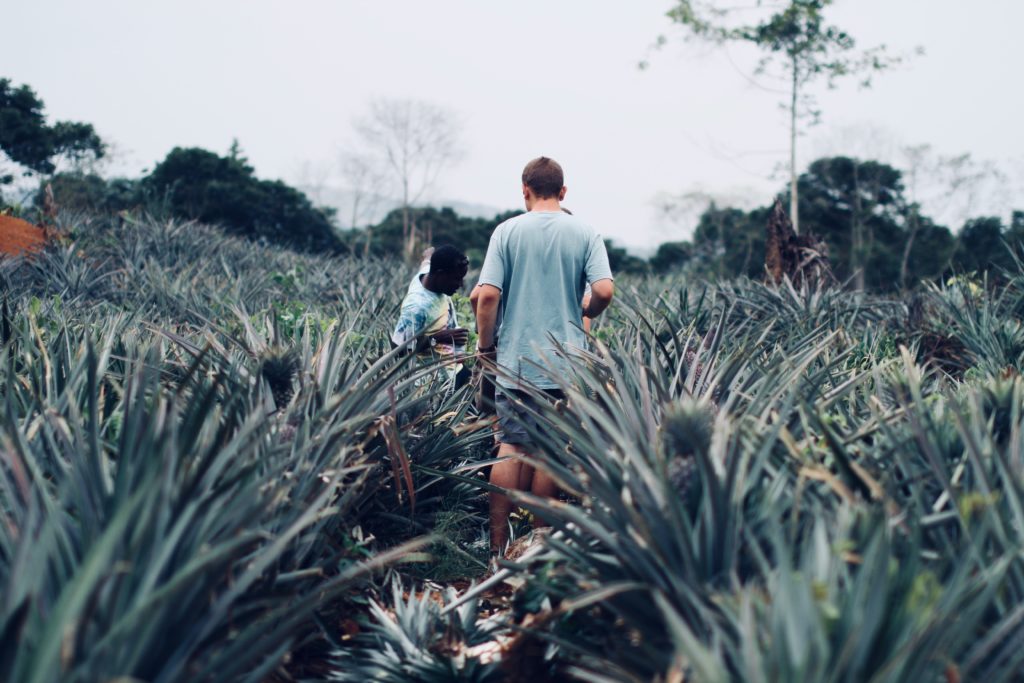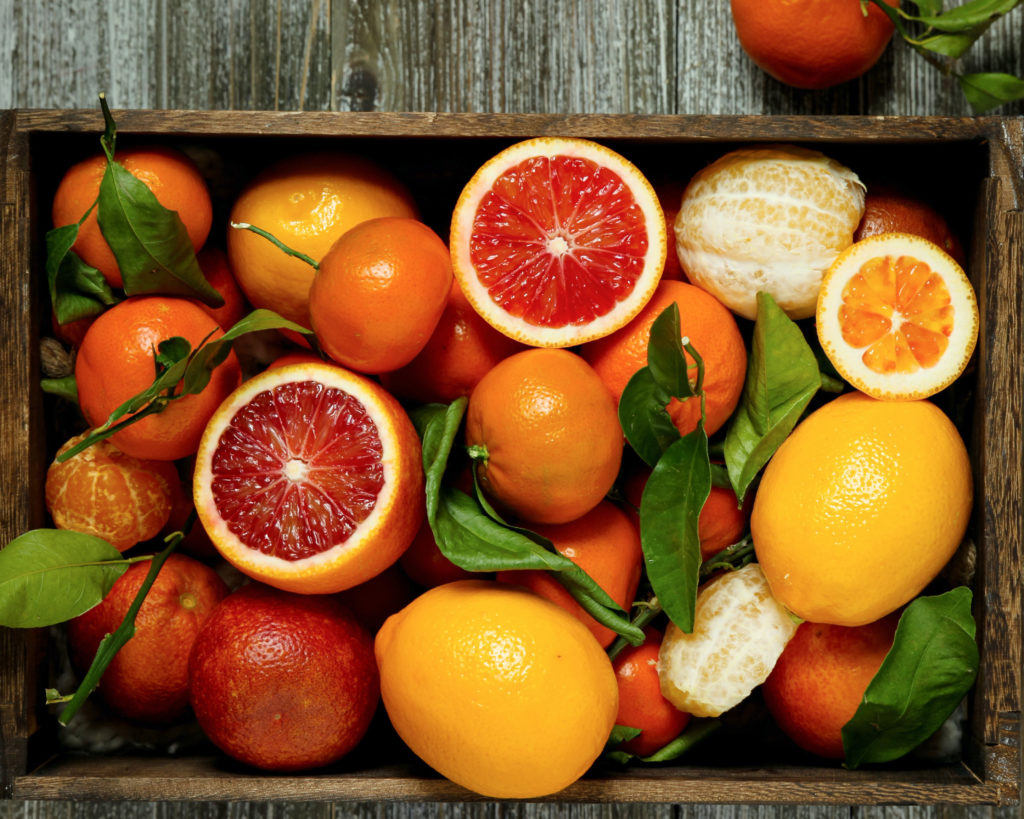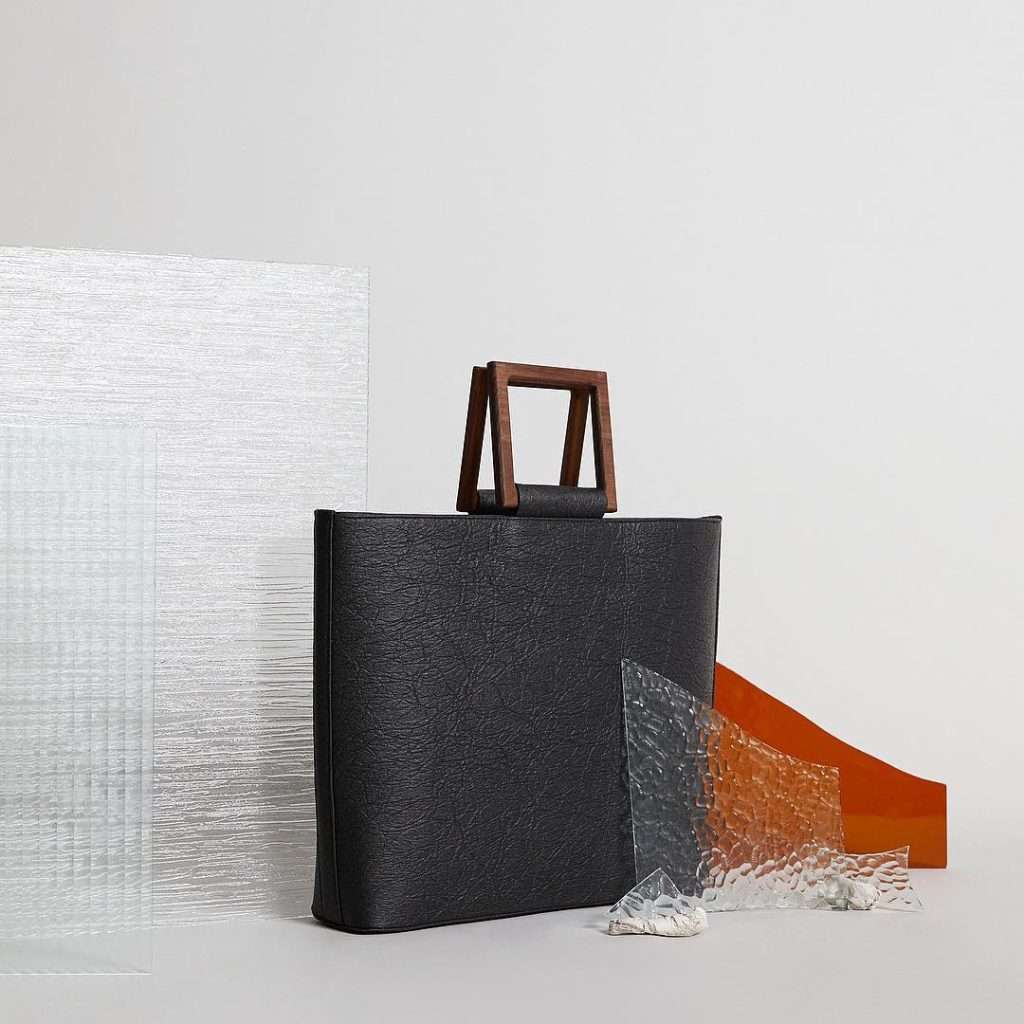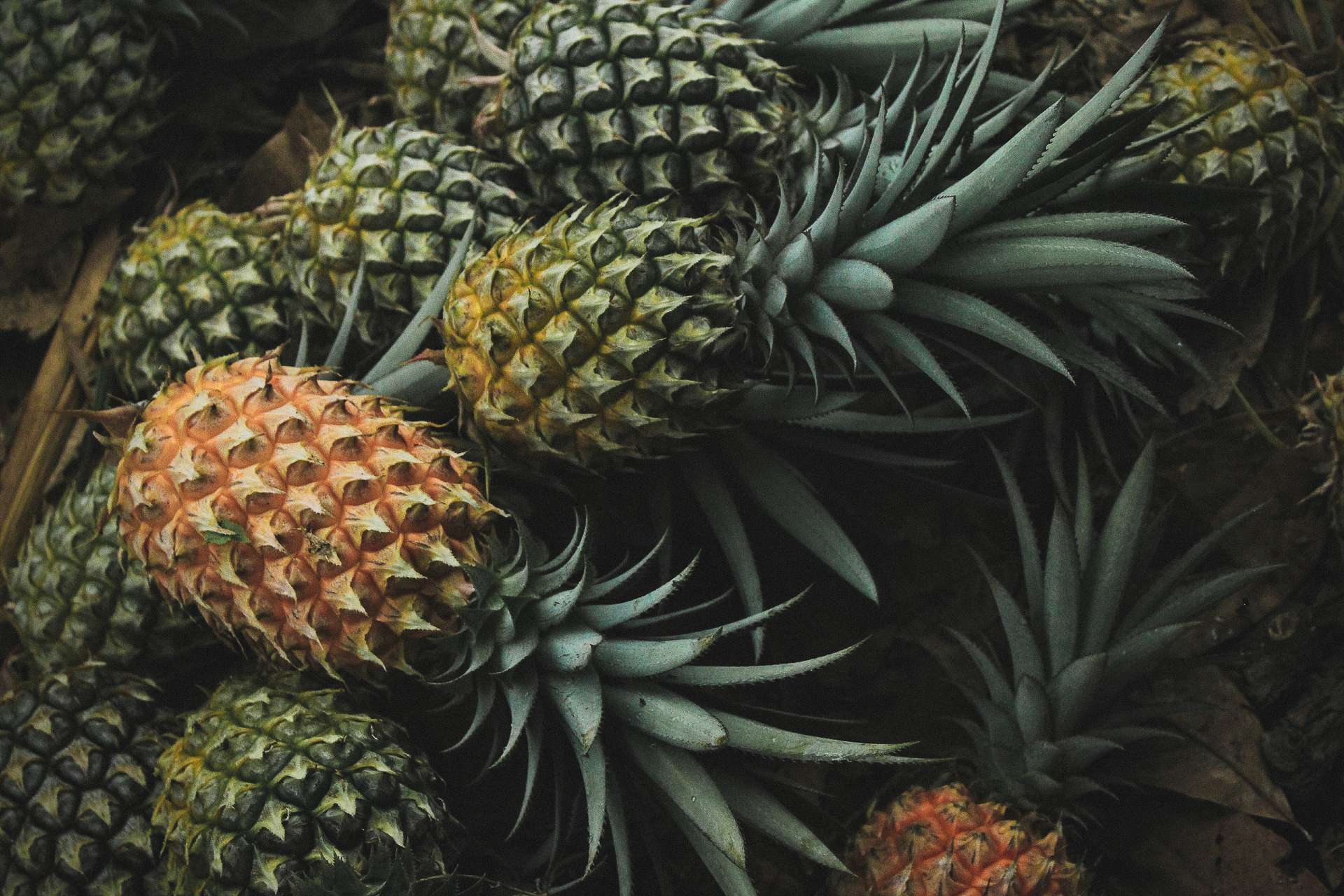The world’s largest fruit and vegetable producer, California’s Dole Food Company, has announced plans to supply popular London vegan pineapple leather brand Ananas Anam with pineapple leaves as part of its sustainability initiatives.
Ananas Anam is the company behind the vegan leather brand known as Piñatex. Once dried and processed, pineapple leaves create a non-woven mesh, which forms the base of the vegan leather that looks and feels like cow leather.
While not edible, the leaves create a significantly large volume of waste in pineapple production. More than 26 million tons of pineapple are produced every year mainly across Costa Rica, Brazil, and the Philippines. Turning them into leather is a sustainable solution to biomass waste and a far more sustainable alternative to cow leather. The livestock industry is responsible for 18 to 24 percent of greenhouse gas emissions.

Zero Fruit Loss
The move comes as part of Dole’s “zero fruit loss” initiative. Last year it released a six-pronged sustainability pledge that includes efforts to reduce food waste, eliminate all processed sugar and plastics, and improve nutrition access across the globe.
“At Dole, we believe purpose – and therefore our Promise – must permeate everything we do to address these global challenges head-on. Addressing food waste is absolutely important to us, as it is connected to our business and our lives in so many ways,” Pier-Luigi Sigismondi, Dole’s global president, said in a statement. “I believe to create tangible solutions and real systemic change to address this issue, we need to converge our purpose with creativity, innovation, and technology. Our partnership with Ananas Anam coupled with global lifestyle brands’ use of this innovation truly bring this convergence to life in a new way.”
In an interview with Forbes last year, Sigismondi addressed the brand’s commitment to ending waste in its supply chain.
“By 2025 we aim to have eliminated fruit waste from our own operations, starting with a search for innovative ways to repurpose organic waste to new products. What cannot nourish people will go back to nourish the land. We will work with customers and suppliers to reduce losses across the supply chain.”
Dole says it’s aiming to become carbon neutral by 2030 across it operations, sourcing all renewable energy and reducing emissions by 50 percent from 2019 levels. It’s also working to ensure its supply chain partners are taking steps to further reduce greenhouse gases.

To Feed A Billion
Sigismondi says Dole is also steadfast in its effort to address the growing problem of food inequality, and how it intersects with the company’s sustainability commitments.
“Dole’s commitment to increase access to sustainable nutrition will play a role, along with its effort to eliminate food waste,” he said. “Our promise is not just about improving our world today. We have a responsibility to future generations to work towards a more equitable and sustainable future.”
Part of the brand’s commitment includes ensuring access to nutrition for a billion people by 2025.
“We will do this by improving the affordability, distribution, and supply of our products, and ensuring people understand what good nutrition is and how to achieve it,” Sigismondi said.
“Prosperity is part of our promise and an important one. To really make a difference to a billion people in five years demands that we remain economically sustainable – but not at the expense of other stakeholders. We promise to create shared value for our farmers, communities, workforce, suppliers, customers, and shareholders through our commitment to equal opportunity, living wages and a relentless focus on safety, nutrition and well-being. Our aim is to increase the value of our business by 50% by 2025.”

Vegan Pineapple Leather
The high-end vegan leather made its commercial debut with Hugo Boss in a range of shoes in 2019. Ananas Anam has since worked with brands including Nike, H&M, Paul Smith, and the Hilton Hotel London Bankside, in bringing Piñatex to market.
“At Ananas Anam, we aim at meeting the challenges of our times by developing innovative products in which commercial success is integrated with, and promotes social, ecological and cultural development,” said Dr Carmen Hijosa, founder and chief creative & innovation officer at Ananas Anam. By connecting on a deep level with the people we work with, we build ecosystems that are bound together, symbiotically grow together in order to bring about positive changes into the world.”
Dole has been a prominent purveyor of fruits and vegetables since 1899, when James Dole, a graduate of the Harvard School of Horticulture & Agriculture, began growing pineapples in Hawaii. The company says its mission is to champion an equitable world “where everyone – irrespective of age, income, location, race or gender – has access to healthy nutrition, but where this access does not come at the cost of the planet.”
Read more: The 13 Best Sustainable Fashion Brands Turning Deadstock and Organic Textiles Into Luxury Clothes


